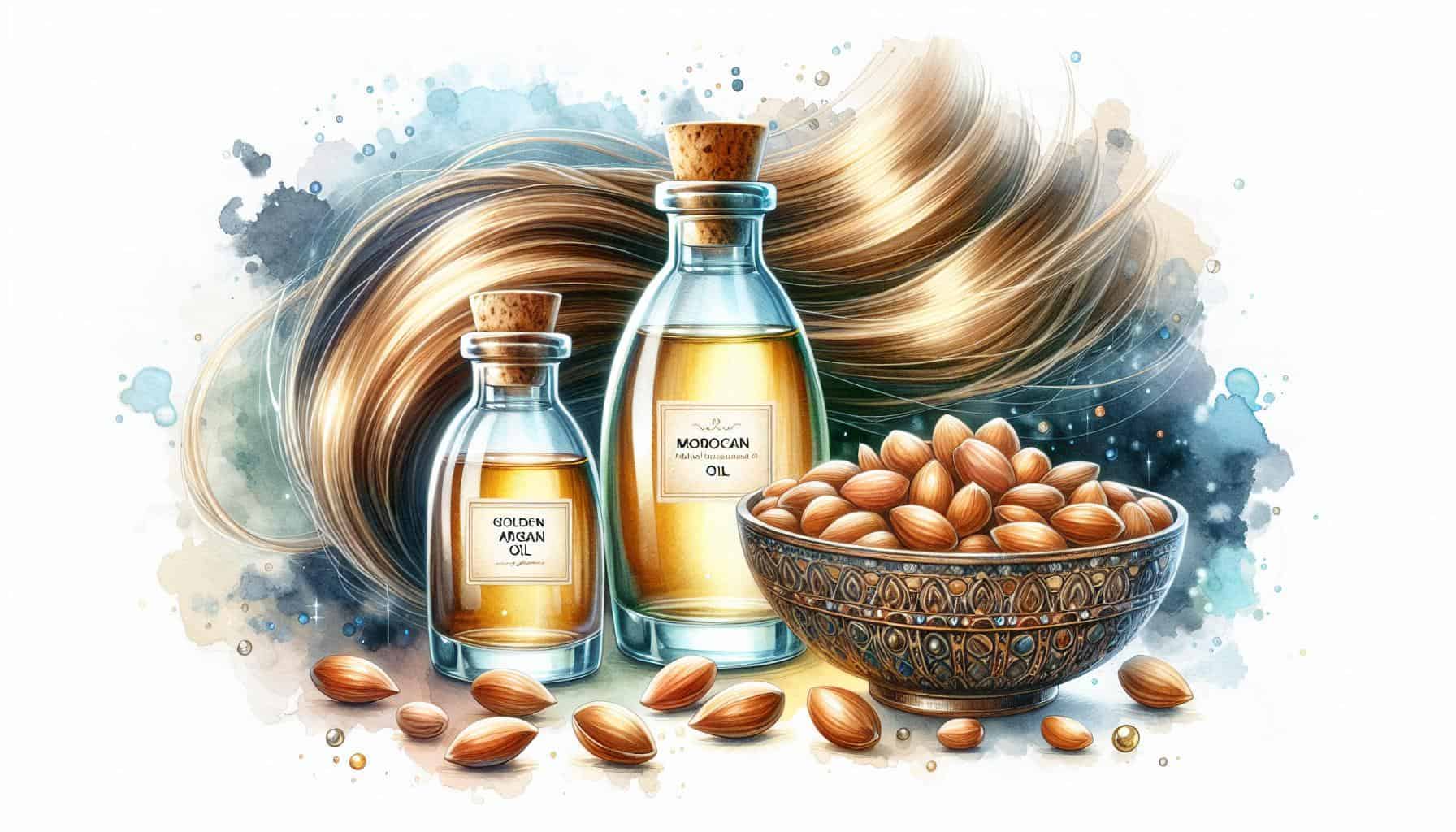Argan Oil vs Moroccan Oil: 2024 Guide to Choosing for Your Hair
Navigating the world of hair care can often feel like walking through a maze, especially when it comes to choosing between argan oil and Moroccan oil. Both oils have taken the beauty industry by storm, promising luscious locks and a solution to your hair woes. But what really sets them apart? In this guide, we’ll dive into the argan oil vs Moroccan oil debate, shedding light on their benefits, differences, and how to choose the right one for your hair needs.
Understanding the origins and core benefits of these oils is key to making an informed decision. Argan oil, extracted from the fruit of the Argan tree native to Morocco, is celebrated for its enriching Vitamin E content, ideal for hair, skin, and nails. On the flip side, Moroccan oil, often associated with the popular brand Moroccan Oil, has garnered acclaim for reviving dry, damaged hair. Let’s explore the nuances that make each oil unique and discover which one might be your hair’s best friend.
What is Argan Oil?
Diving into the heart of hair care essentials, you’ve likely stumbled upon the term “argan oil” more than once. But what truly sets it apart in the sea of hair care products? As we dissect this golden elixir’s origins and unique properties, you’ll discover why it’s not just another ingredient in your shampoo bottle.
Origins and Production
At the core of argan oil’s existence is the argan tree, Argania spinosa, a species native to Morocco. This tree’s fruits bear the precious seeds from which argan oil is extracted. The process of obtaining argan oil is labor-intensive, often involving hand-cracking the nuts to reach the oil-rich kernels inside. This traditional method not only preserves the oil’s natural qualities but also supports the local communities involved in its production.
For a deeper dive into the argan oil extraction process, consider exploring resources such as National Geographic for insights on its cultural and ecological importance.
Properties and Benefits
Argan oil is often hailed as ‘liquid gold,’ and for good reason. Its composition is rich in essential fatty acids, antioxidants, and vitamin E, making it a powerhouse for hair revitalization. Here are a few reasons why argan oil might just be the elixir your hair has been thirsting for:
- Moisturization: Argan oil’s high concentration of fatty acids helps to deeply moisturize hair and scalp, preventing dryness and reducing frizz.
- Damage Repair: The antioxidants in argan oil aid in repairing cellular damage in hair follicles, caused by environmental stressors such as pollution and UV rays.
- Scalp Health: Vitamin E in argan oil boosts cell regeneration, promoting a healthy scalp and, consequently, healthier hair growth.
Intrigued by the benefits of argan oil? Websites like Healthline offer comprehensive guides on its multifaceted uses and benefits, particularly for hair care.
Incorporating argan oil into your routine isn’t just about achieving shinier locks—it’s about nurturing your hair from root to tip. Whether you’re looking to revive dry, damaged hair or simply maintain your hair’s natural health, argan oil stands out as a versatile, all-natural solution. As you continue exploring the argan oil versus Moroccan oil debate, keep in mind the remarkable journey and potent properties of argan oil, a true treasure from the heart of Morocco.
For further reading on the unique qualities of argan oil and how it compares to other hair care oils, check out articles on Byrdie for expert advice and product recommendations.
What is Moroccan Oil?
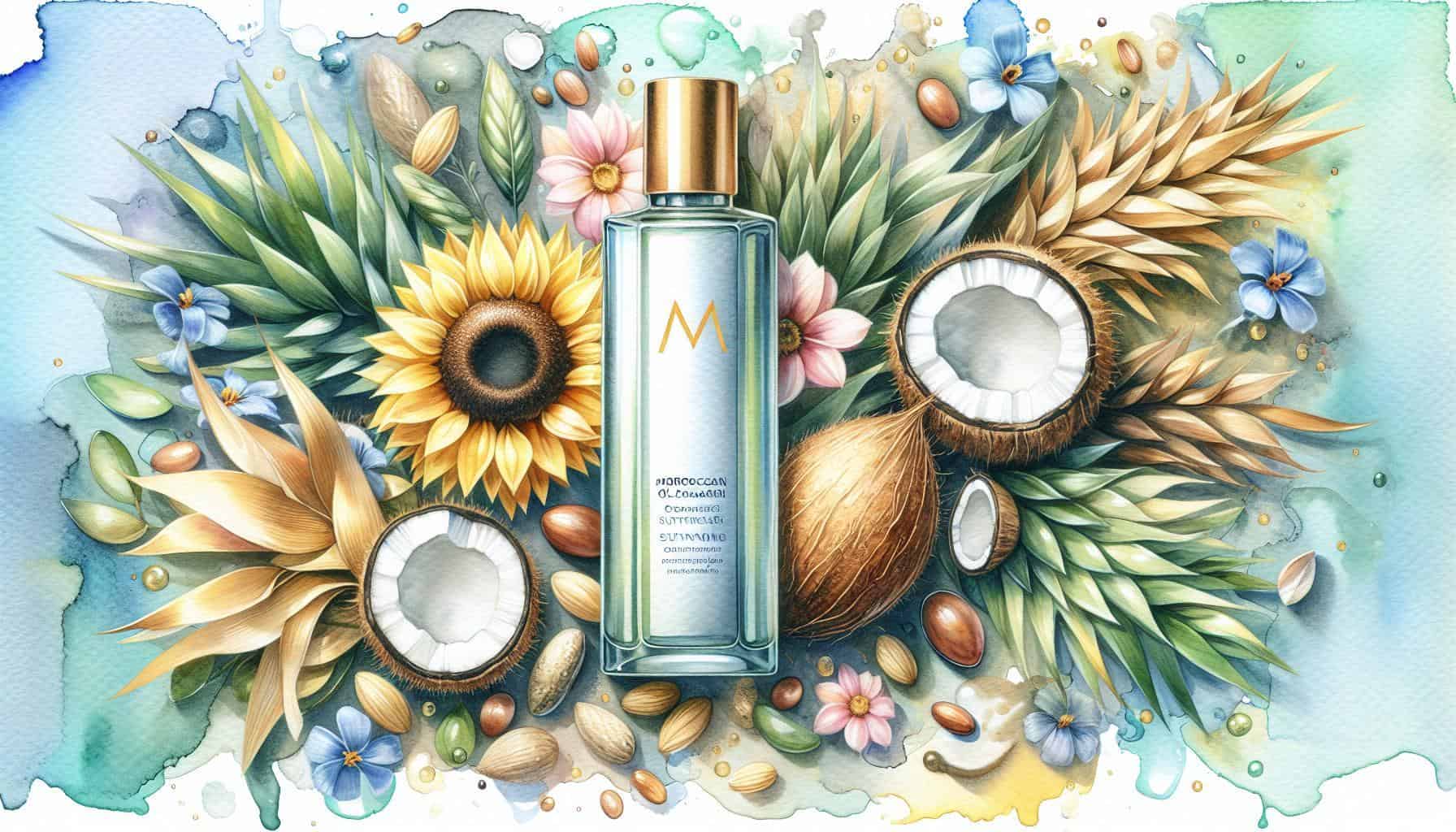 When you’re diving into the world of hair care, Moroccan oil often pops up as a must-have elixir for luscious locks. But what exactly is this sought-after oil, and how does it stand out from its cousin, argan oil? Let’s unravel the mysteries behind Moroccan oil and discover how it can transform your hair care routine.
When you’re diving into the world of hair care, Moroccan oil often pops up as a must-have elixir for luscious locks. But what exactly is this sought-after oil, and how does it stand out from its cousin, argan oil? Let’s unravel the mysteries behind Moroccan oil and discover how it can transform your hair care routine.
Origins and Production
Moroccan oil, also widely known as ‘liquid gold,’ originates from the arid landscapes of Morocco, a testament to its enduring allure and significance in beauty rituals. Unlike argan oil, which is extracted purely from the kernels of the Argan tree, Moroccan oil is a crafted blend. Argan oil, rich in vitamins and antioxidants, serves as its base, but the magic of Moroccan oil lies in its unique formulation with additional ingredients to enhance its hair-nourishing properties.
This blend often includes other oils like sunflower and coconut oil, making it an all-encompassing hair care solution. The production of Moroccan oil is a craft perfected over generations, combining traditional methods with modern science to ensure every drop is packed with hair-enhancing goodness.
Properties and Benefits
Moroccan oil is celebrated for its multifaceted benefits, making it a versatile addition to your hair care regimen. Enriched with fatty acids, antioxidants, and vitamin E, this oil is a powerhouse of nutrients essential for hair health. The antioxidants fight off damage caused by environmental stressors like UV rays and pollution, while vitamin E supports hair growth and scalp health.
But what really sets Moroccan oil apart are its moisturizing properties. Ideal for those with dry or curly hair, it locks in moisture, ensuring your hair stays hydrated and soft throughout the day. Its non-greasy formula means it absorbs quickly, leaving no oily residue behind.
For styling aficionados, Moroccan oil is a game-changer. It tames frizz, simplifies detangling, and adds an enviable shine to your hair, making styling a breeze. Worried about damaged or split ends? Moroccan oil works wonders here too, repairing and strengthening hair with every use.
Discover more about the transformative effects of Moroccan oil for addressing skin concerns and enhancing elasticity, which signifies healthy and resilient hair.
Key similarities between Argan Oil and Moroccan Oil
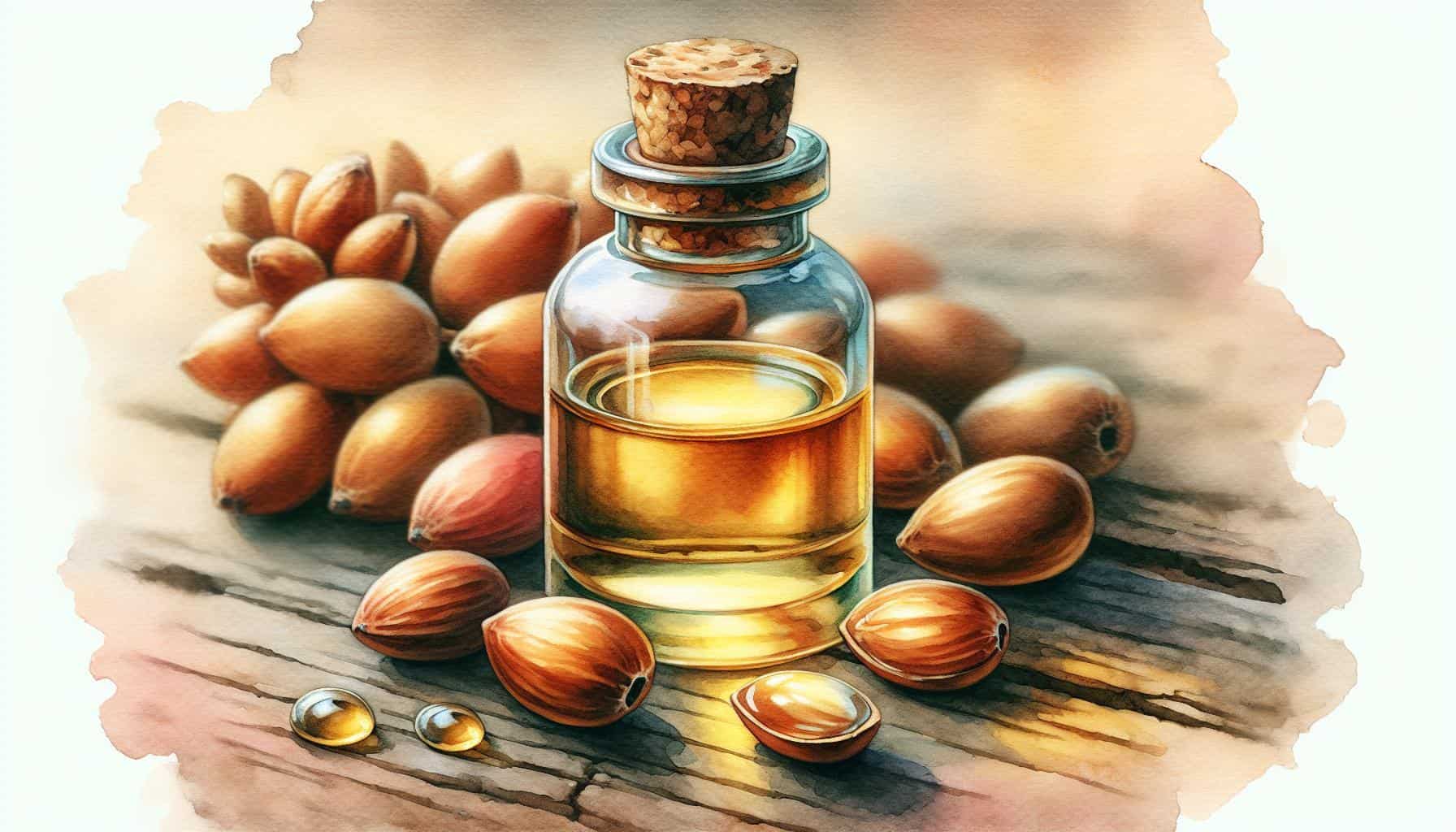 When you dive into the world of hair care, argan oil and Moroccan oil often crop up as frontrunners for keeping your locks luscious and healthy. At first glance, it may seem like they’re worlds apart, but you’d be surprised at how similar they are. Here are the key similarities between argan oil and Moroccan oil to help you make an informed decision.
When you dive into the world of hair care, argan oil and Moroccan oil often crop up as frontrunners for keeping your locks luscious and healthy. At first glance, it may seem like they’re worlds apart, but you’d be surprised at how similar they are. Here are the key similarities between argan oil and Moroccan oil to help you make an informed decision.
Firstly, both these oils share a crucial ingredient: argania spinosa kernel oil, commonly known as argan oil. This remarkable oil is the powerhouse behind their shared benefits, making them excellent choices for nurturing hair (source). Whether you’re reaching for a bottle of pure argan oil or Moroccan oil, you’re essentially tapping into the natural goodness that has been cherished in beauty rituals for centuries.
Another notable similarity is their multifaceted benefits. Both oils are celebrated for their ability to moisturize hair deeply, combat frizz, add shine, and improve hair elasticity. If you’ve ever struggled with dry, brittle, or lifeless hair, incorporating either of these oils into your routine can be a game-changer. They’re also adept at repairing damage caused by heat styling and environmental stressors, making them a staple for anyone looking to maintain hair health in the long run.
Lastly, the environmental and ethical sourcing of these oils plays a big part in their appeal. Many brands, like Organix, prioritize environmentally friendly practices and organic ingredients, ensuring that your beauty regimen doesn’t come at the cost of the planet. This ethical approach has won the hearts of eco-conscious consumers worldwide, making both argan oil and Moroccan oil popular choices for those looking to make sustainable beauty choices.
While they may have their differences, the core benefits of argan oil and Moroccan oil highlight their shared lineage. Whether you’re exploring Moroccanoil’s range or considering a pure argan oil treatment, understanding these similarities can guide your journey to achieving healthier, more vibrant hair.
As you further explore the unique qualities of each, keep in mind their foundational similarities and the ways in which they can enrich your hair care routine.
Key differences between Argan Oil and Moroccan Oil
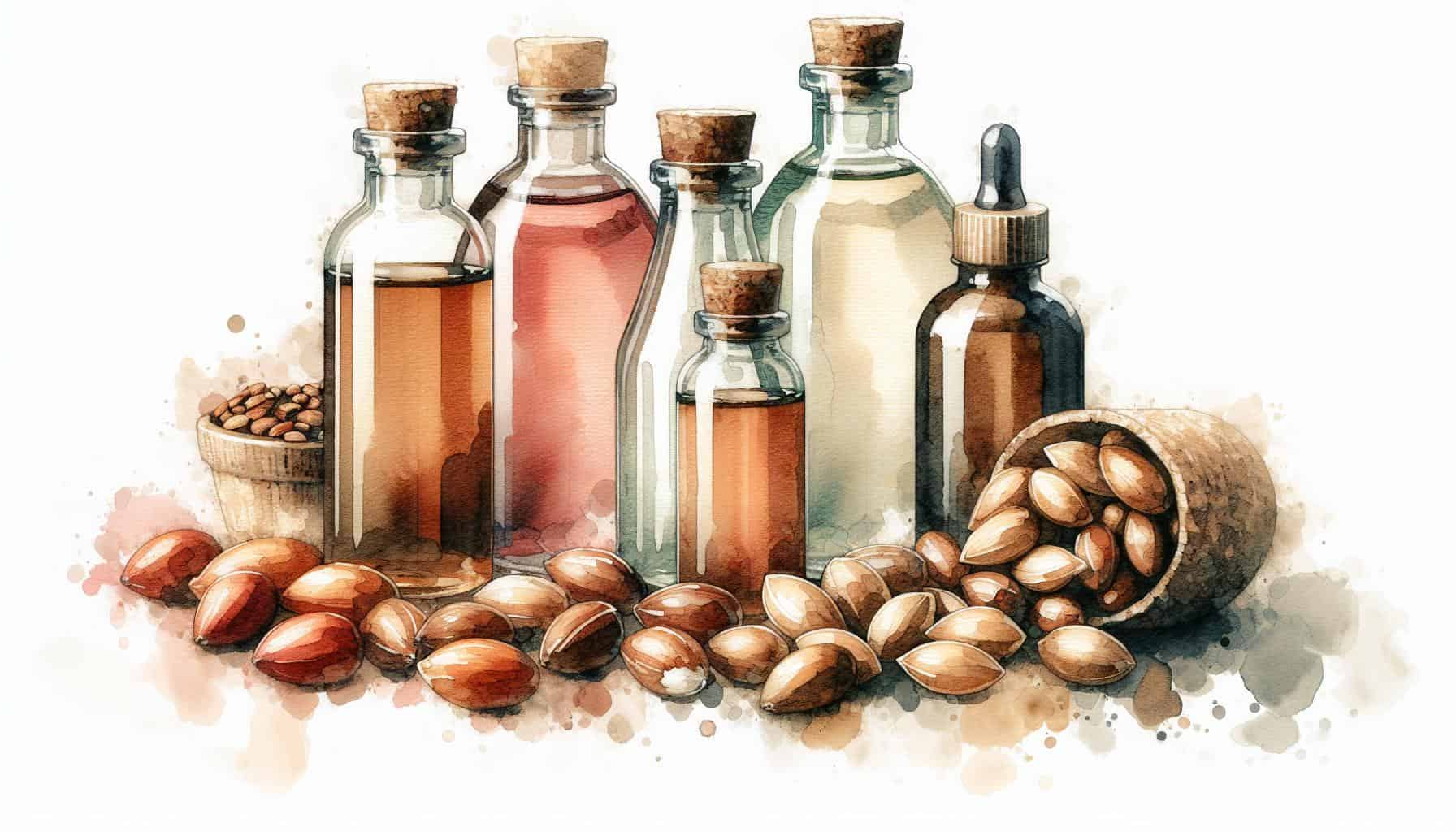 When diving into the world of luxurious hair care, you’ll often find yourself faced with the choice between Argan Oil and Moroccan Oil. Despite their similarities, these two powerhouse oils have distinct features that set them apart.
When diving into the world of luxurious hair care, you’ll often find yourself faced with the choice between Argan Oil and Moroccan Oil. Despite their similarities, these two powerhouse oils have distinct features that set them apart.
Understanding the Composition
First and foremost, it’s crucial to understand that Argan Oil is the purest form of the oil, derived directly from the kernels of the argan tree fruit. This oil is celebrated for its ability to repair damaged hair and skin, providing the scalp with essential nutrients for long, healthy hair. Find more on Argan Oil’s benefits here.
On the other hand, Moroccan Oil is not just argan oil. It contains argan oil as a key ingredient but is also infused with other oils, plant extracts, and additives. These components work together to reduce frizz and make the styling process smoother. Discover the intricate blend of Moroccan Oil here.
Usage and Application
Another notable difference lies in their application. Argan Oil can be a pre or post-wash treat for your hair and even taken as supplements, offering a versatile approach to hair care. On the contrary, Moroccan Oil is ideally used after washing your hair, focusing on enhancing styling and finish. Read more about their applications here.
External vs. Internal
Interestingly, Argan Oil offers the unique advantage of being consumable in the form of supplements, providing benefits that go beyond external application. Moroccan Oil, with its blend of ingredients, is solely for external use, focusing on topical hair and skin improvement.
By understanding these key differences between Argan Oil and Moroccan Oil, you’ll be better equipped to choose the right oil that suits your hair care needs and preferences. Whether it’s the enriching purity of Argan Oil or the styling finesse of Moroccan Oil, your hair care routine is about to get an upgrade.
How to choose between Argan Oil and Moroccan Oil
When you’re standing in the beauty aisle, debating whether to splurge on argan oil or Moroccan oil, knowing the distinct benefits of each can guide your decision. They both boast powerful properties that cater to different hair needs, and understanding these can transform your hair care routine.
Understanding Your Hair Type and Needs
First, evaluate your hair type and concerns. Argan oil, with its pure, enriching properties, might be your go-to if you’re looking for deep nourishment and repair. Its high content of antioxidants, essential fatty acids, and vitamin E makes argan oil ideal for those with dry, brittle, or damaged hair. On the other hand, Moroccan oil is like a multitasking hero. Infused with argan oil and other beneficial ingredients, it serves as a lighter, versatile option that not only hydrates but also aids in styling and frizz control.
For more insights on identifying your hair type and needs, check out Common Hair Problems and Solutions.
Ingredients Matter
Don’t let marketing sway your choice without checking the labels. Both oils might seem similar at a glance, thanks to the presence of argania spinosa kernel oil, but the devil is in the details. Moroccan oil often includes additional ingredients like silicones, fragrances, and other oils, which can either be a boon or a bane based on your hair’s sensitivities and requirements. If purity is your primary concern, argan oil’s straightforward composition could be what your hair is craving.
For a deeper dive into the ingredient lists of popular products, head over to Comparing Hair Oil Ingredients.
Considering Your Hair Care Goals
Ultimately, your choice boils down to your specific hair goals. If you’re aiming for intense repair and restoration, argan oil, with its rich nutritional profile, might just do the trick. Those looking for a lightweight option that promises shine, smoothness, and ease of styling might find Moroccan oil to be the perfect fit. Remember, your hair’s needs can change with time, so it’s worth experimenting to discover what works best for you.
The best uses for Argan Oil
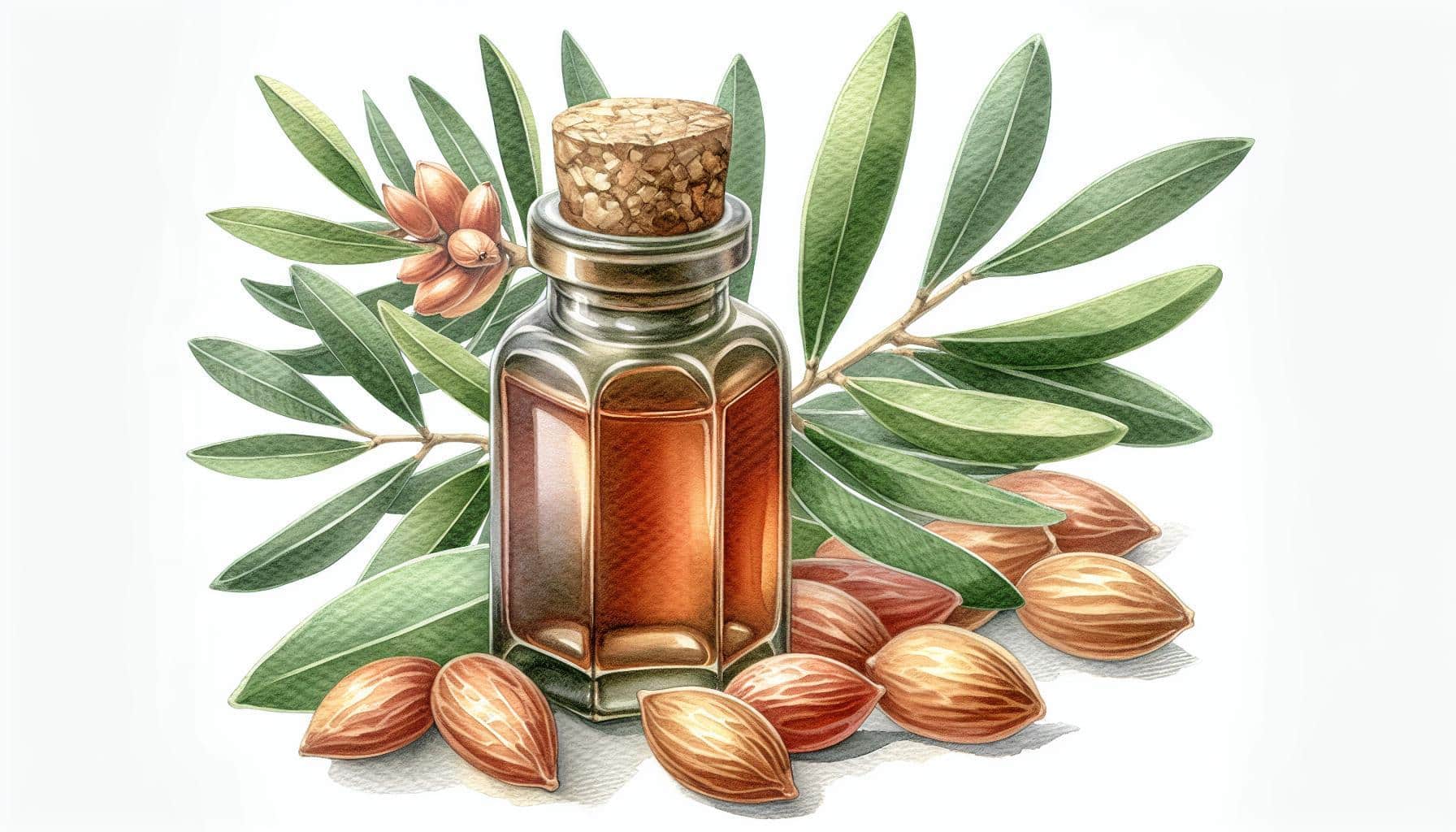 Diving into the realm of argan oil, you’ll soon realize why it’s been a cherished beauty secret for centuries. Hailing from the kernels of the argan tree exclusive to Morocco, this potent oil is your ticket to a radiant, healthier you. Whether it’s your skin, hair, or nails, argan oil stands out as a versatile elixir. Cleverly integrate this magical ingredient into your beauty regimen and witness its transformative powers.
Diving into the realm of argan oil, you’ll soon realize why it’s been a cherished beauty secret for centuries. Hailing from the kernels of the argan tree exclusive to Morocco, this potent oil is your ticket to a radiant, healthier you. Whether it’s your skin, hair, or nails, argan oil stands out as a versatile elixir. Cleverly integrate this magical ingredient into your beauty regimen and witness its transformative powers.
Skincare
When it comes to skincare, argan oil is a true powerhouse. Its high levels of Vitamin E and essential fatty acids work wonders for nourishing, hydrating, and protecting your skin. Unlike other skincare oils, argan oil is non-greasy and absorbs quickly, making it perfect for daily use. It’s an excellent choice for moisturizing your face and body, leaving your skin soft and supple without the oily residue.
But argan oil’s benefits don’t stop there. Its antioxidant properties help fight the visible signs of aging by reducing the appearance of fine lines and wrinkles. Furthermore, it’s been found effective in improving skin elasticity, giving you a youthful, radiant glow. For those dealing with acne or dry patches, argan oil can soothe and heal your skin with its anti-inflammatory qualities.
Discover more about argan oil’s skincare benefits here.
Haircare
Turning our focus to haircare, argan oil is a game-changer. It’s incredibly hydrating and can transform dry, brittle hair into luscious locks. By deeply moisturizing the scalp and hair, argan oil prevents and treats dandruff and other scalp conditions. Its ability to tame frizz, add shine, and make hair silkier and more manageable has made it a staple in haircare routines around the globe.
Argan oil is also a fantastic product for hair protection. Applying it before using heat styling tools can shield your hair from heat damage. Additionally, it can protect your hair from the daily environmental stressors that can lead to split ends and breakage. Whether your hair is damaged from coloring or styling, argan oil can help repair and restore its natural beauty.
For tips on how to incorporate argan oil into your haircare routine, check out this site.
Nail Care
Don’t overlook your nails and cuticles. Argan oil can significantly enhance the strength and health of your nails. Rich in nutrients, it provides natural moisture to dry, brittle nails, preventing cracking and peeling. When applied to cuticles, argan oil softens and hydrates, promoting healthier nail growth and a neater manicure.
Applying argan oil to your nails can also protect them from damage and infections due to its anti-fungal properties. For those striving for strong nails and soft, healthy cuticles, adding a few drops of argan oil to your nail care routine can make all the difference.
Learn more about argan oil for nail care here.
By harnessing the power of argan oil, you’re tapping into nature’s reservoir of beauty secrets. Embrace this all-natural solution and let it rejuvenate your skin, hair, and nails. With regular use, you’ll not only see but feel the remarkable benefits of argan oil.
The best uses for Moroccan Oil
Delving into the world of beauty products, you’ll often find yourself coming across Moroccan oil and its myriad benefits. While widely acclaimed for its hair care properties, Moroccan oil is a multifaceted product that beautifully enhances your skincare and nail care routines as well. In this section, we’ll explore how this versatile oil can be your go-to for nourishing and revitalizing not just your hair but your skin and nails too.
Skincare
Enriched with antioxidants and essential fatty acids, Moroccan oil offers a luxurious experience for your skin. It’s not just a moisturizer; it’s a powerhouse for keeping your skin hydrated, soft, and glowing. Due to its non-greasy texture, it absorbs quickly, locking in moisture without clogging pores. For those battling dry patches or flakiness, incorporating Moroccan oil can be a game-changer.
One of the oil’s standout features is its ability to reduce the appearance of scars and fine lines. Thanks to its vitamin E content, Moroccan oil can help in repairing damaged skin, promoting a smoother, more youthful complexion. For an in-depth guide on leveraging Moroccan oil for your skincare routine, check out this resource here.
Applying a few drops to your face before bedtime allows the oil to work its magic overnight, leaving you with rejuvenated skin by morning. It’s also perfect for a relaxing self-massage, enhancing blood circulation and boosting glow.
Haircare
Haircare is arguably the realm where Moroccan oil truly shines. It’s renowned for its ability to transform dry, brittle hair into luscious, shiny locks with just a few applications. By penetrating deep into the hair shaft, it nourishes from within, smoothing out frizz and mending split ends.
Its versatility as a hair care product is unmatched. Whether you’re dealing with color-treated hair or natural curls, Moroccan oil can be seamlessly integrated into your existing hair care regimen. Use it as a pre-shampoo treatment, leave-in conditioner, or styling product to add that extra gloss and tame unruly strands. For a guide on incorporating Moroccan oil into your hair routine, explore this article here.
When used regularly, Moroccan oil not only improves hair texture and manageability but also protects against heat damage and environmental stressors, ensuring your hair stays healthy and vibrant.
Nail Care
Don’t overlook Moroccan oil when it comes to your nails. For those suffering from brittle nails and ragged cuticles, Moroccan oil can be a lifesaver. Its rich composition strengthens nails, promoting growth and adding a natural shine that no polish can mimic.
Applying a drop of Moroccan oil to each cuticle and gently massaging it in can significantly improve nail health, preventing splitting and breakage. It’s an effective way to keep your nails and cuticles moisturized, especially during harsh weather conditions.
For more insights on how Moroccan oil can transform your nail care routine, visit here.
Remember, when it comes to beauty routines, consistency is key. Incorporating Moroccan oil regularly into your skincare, haircare, and nail care routines will yield the best results, allowing you to experience the full spectrum of benefits this miraculous oil has to offer.
Key Takeaways
- Argan oil is a pure extract from the Argan tree native to Morocco, celebrated for its moisturizing abilities, damage repair qualities, and scalp health benefits due to its rich content in fatty acids, antioxidants, and vitamin E.
- Moroccan oil is a formulated blend, primarily based on argan oil but enhanced with other ingredients like sunflower and coconut oil for added hair-nourishing benefits, ideal for styling, and addressing dry or curly hair needs.
- When considering argan oil vs. Moroccan oil, it’s important to note their key
Conclusion
Choosing between argan oil and Moroccan oil boils down to understanding your specific beauty needs. Whether you’re aiming for deep hair nourishment, skin hydration, or nail strengthening, both oils offer unique benefits. Remember, argan oil is your go-to for intensive repair and moisture, while Moroccan oil serves as a lighter, multifaceted solution for styling, frizz control, and quick absorption. Paying attention to product labels will ensure you get the most out of these oils. Integrating either into your routine consistently is key to unlocking radiant hair, skin, and nails. Let your beauty goals guide your choice and revel in the luxurious benefits these oils have to offer.
Which Oil Is Better for Hair and Skin: Argan Oil or Rosemary Oil?
When it comes to nourishing your hair and skin, argan oil and rosemary oil are both great options. Argan oil is rich in vitamins and antioxidants, making it ideal for moisturizing and restoring damaged hair and skin. On the other hand, rosemary oil is known for its stimulating and invigorating properties, making it a great choice for promoting hair growth and improving skin circulation. Ultimately, the best oil for you will depend on your specific needs and preferences.
Frequently Asked Questions
Why is Moroccan argan oil so expensive?
Argan oil’s high cost is attributed to its labor-intensive extraction process and the exclusivity of the argan tree to Morocco, making it a rare and valuable oil.
Does argan oil clog pores?
No, argan oil won’t clog your pores. It’s lightweight and not greasy, making it suitable for all skin types without causing acne or blemishes.
Which three oils are best for hair growth?
The top three oils for hair growth are lavender, rosemary, and thyme essential oils. They can be supported by carrier oils like coconut, olive, and jojoba oil for enhanced results.
Do Moroccans use argan oil?
Yes, Moroccans have been using argan oil for centuries both for its health benefits and its subtle, nutty flavor in various culinary applications.
Which oil is best for thinning hair?
Coconut oil is highly recommended for thinning hair. It improves scalp blood circulation, making it effective against hair loss and thinning hair problems.

